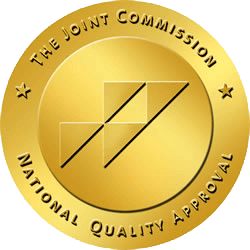Anyone who is recovering from substance abuse can tell you that the initial treatment phase is only half the battle. The real struggle begins afterwards, especially in the first few weeks and months after treatment. Relapses are, unfortunately, a common occurrence during recovery, and they’re certainly no reason to give up, just the opposite in fact. But after decades of research and hard experience, it’s possible to identify certain social factors and situations that make relapse more likely, and others that make it less likely to happen. Recognizing the triggers, and also the factors that strengthen the recovery process, can enable you to develop a lifestyle that will encourage sobriety and help you to avoid relapse altogether. Here are five essential tactics to avoid relapse.
1. Avoid Friends and Situations That Might Trigger a Relapse
This might seem like just good sense that doesn’t need mentioning, but this is the most common cause of ‘falling off the wagon.’ Some people even deliberately put themselves in risky situations, just to prove to themselves and others that they can be around it and not use it. Staying away from friends, places and activities that you associate with partying is the best way to deal with temptation.
2. Take Full Advantage of Your Support Network
Your aftercare program will surely include a support group and individuals that are committed to helping you with your recovery, and you shouldn’t neglect these important resources. Family and friends who care about you will give you strength and purpose, and are vital to your wellness. Don’t be afraid to disassociate with people who are unhealthy, even if it means changing jobs, getting a new phone number, and unfriending people on social media.
3. Take up New Hobbies and Activities
Or become more involved in the ones you already have. Something has to take the place of the partying you used to do, which probably took up more of your time and attention than you realized. Healthy, sober pursuits are an enormous help in staying focused and keeping your mind off of your habit.
4. Adopt a Healthy Diet and Exercise Routine
Your treatment program has already taught you about the importance of a healthy diet to address the nutritional aspects of addiction, and the role of good health in general. Now it’s time to turn the learning into practice. Feeling better and healthy is one of the keys to avoiding temptation. If you don’t feel good, you’re much more likely to turn to something that will make you feel that way. Exercise is a great way to work off the stress and frustrations that naturally come with recovery, and the ones that contributed to your addiction in the first place.
5. Don’t Give up after a Relapse

References:
- Donna M. White, LPCI, CACP, 5 Ways to Avoid Addiction Relapse, PsychCentral, 7/18/2013, http://psychcentral.com/blog/archives/2013/07/18/5-ways-to-avoid-addiction-relapse/
- Treatment and Recovery, National Institute on Drug Abuse, 7/2014, http://www.drugabuse.gov/publications/drugs-brains-behavior-science-addiction/treatment-recovery


